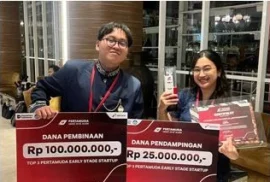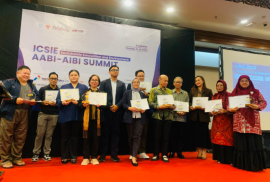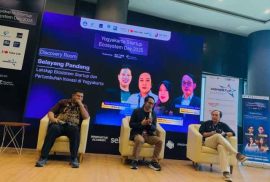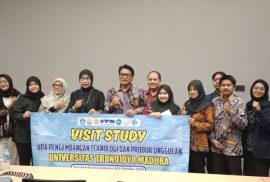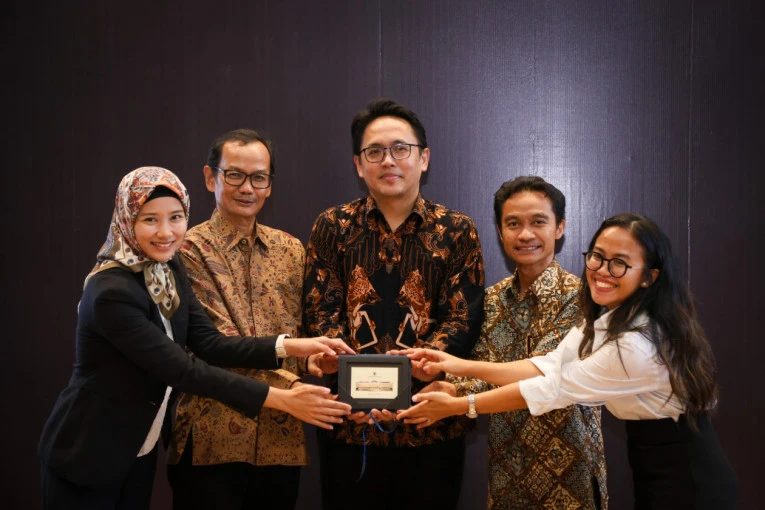
Gadjah Mada University has established a partnership with the Massachusetts Institute of Technology, Regional Entrepreneurship Acceleration Program (MIT-REAP) in the framework of promoting the commercialisation of deep technology research. The partnership involves 17 local companies in promoting the commercialisation of innovative research to the industrial world and providing direct benefits to the community. Some of these innovative research projects include the development of hydrogen energy as a renewable energy source, the development of ocean energy, the application of AI in daily life, the development of health tools and technologies, and green manufacturing.
Professor of the Faculty of Engineering at UGM, Prof. Dr. Eng. Ir. Deendarlianto, S.T., M.Eng., stated that collaborating with the world’s top universities presents a significant opportunity for UGM to enhance the quality of research in technological development, particularly in AI, renewable energy, and health technology. ‘We are exploring future technologies based on strong R&D programmes. Collaborating with all stakeholders, including industry. UGM has been invited by 17 industries for collaboration,’ said Deendarlianto on Wednesday (28/5).
MIT-REAP Indonesia Champion, Prof. Nizam, emphasised the importance of deep tech research for Indonesia’s development progress in order to achieve high and sustainable economic growth. The main requirement for effective deep research is synergy between universities and industry in the development of technology for industry.
The MIT-REAP programme, according to Deendarlianto, focuses on deep tech, which encompasses current and future technological issues such as Artificial Intelligence (AI) for daily life, green manufacturing, and the utilisation of natural resources as renewable energy. The primary outcomes of this research will serve as the foundation for fostering startups that support industrial and societal progress in Indonesia. ‘We are committed to developing an integrated roadmap between UGM and industry. This is an important opportunity,’ explained Deendarlianto.
According to him, the market potential for various research products is actually quite significant. However, universities need to collaborate with industry to help create markets, produce, and distribute these products to consumers. This is considered crucial because without further development from the industrial sector, academic research cannot contribute to addressing societal issues.
One example of research to be undertaken in this programme is the use of aluminium (Al) as a component in power generation. The effectiveness and efficiency of AI automation systems can be leveraged as a control system for power plants, thereby minimising the potential for blackouts. Another intriguing research area is metal fuel, a new renewable energy innovation that converts metal resources into fuel. The products resulting from research are fundamentally created to address current issues that will continue into the future.
When asked about the challenges of commercialising university research, Deendarlianto highlighted that the most important factor is the commitment of collaborating parties. Turning research outcomes into practical products and bringing them to market is no easy feat. Especially if the product is truly new and has never existed before. Commitment and patience are needed to gradually create a market and ensure its benefits are felt by the community. ‘We hope for collaboration, not only with UGM where we learn but also with MIT where we develop together. Industry support will also be crucial to ensure research products do not remain stagnant but enter commercialisation,’ he explained.
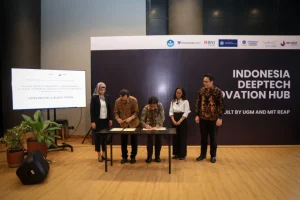
To follow up on the initiation of cooperation with the industry, UGM has held a symposium and workshop at the Faculty of Engineering in the Engineering Research Innovation Centre (ERIC) building, UGM, in collaboration with 17 industry partners. Among the 17 industry partners are Swayasa Prakarsa, Senzo FeinMetal, Global Meditek Utaa, VIAR, and Wijaya Karya Energi. In the near future, Deen stated that UGM will visit MIT through the MIT REAP programme to support research collaboration that prioritises technology as the primary foundation. ‘We hope this programme can assist in the research development process so that it can be utilised by both the community and industry,’ he concluded.
Marina Kusumawardhani, Project Manager of MIT REAP in Indonesia, stated that they welcome the research-industry collaboration initiated by the Faculty of Engineering at UGM with great enthusiasm. ‘While the hope is that this process can be standardised within UGM, and also within MIT [for research collaboration with universities in Indonesia]. So that it is not just 17 but hundreds of industries and research collaborations in the future.’ In addition to research collaboration, MIT REAP also hopes to bring other benefits to UGM and other universities in Indonesia, ’Such as access to foreign industries and foreign investment.’
MIT REAP (Regional Entrepreneurship Acceleration Program) itself is an initiative of the MIT Sloan School of Management aimed at accelerating the growth of innovation and entrepreneurship ecosystems worldwide. ‘Within the MIT REAP framework, collaboration is expected among the five stakeholders of the innovation ecosystem: academia, industry, government, investors, and entrepreneurs,’ concluded Nizam
Author: Tasya
Editor: Gusti Grehenson
Photo: Donnie
